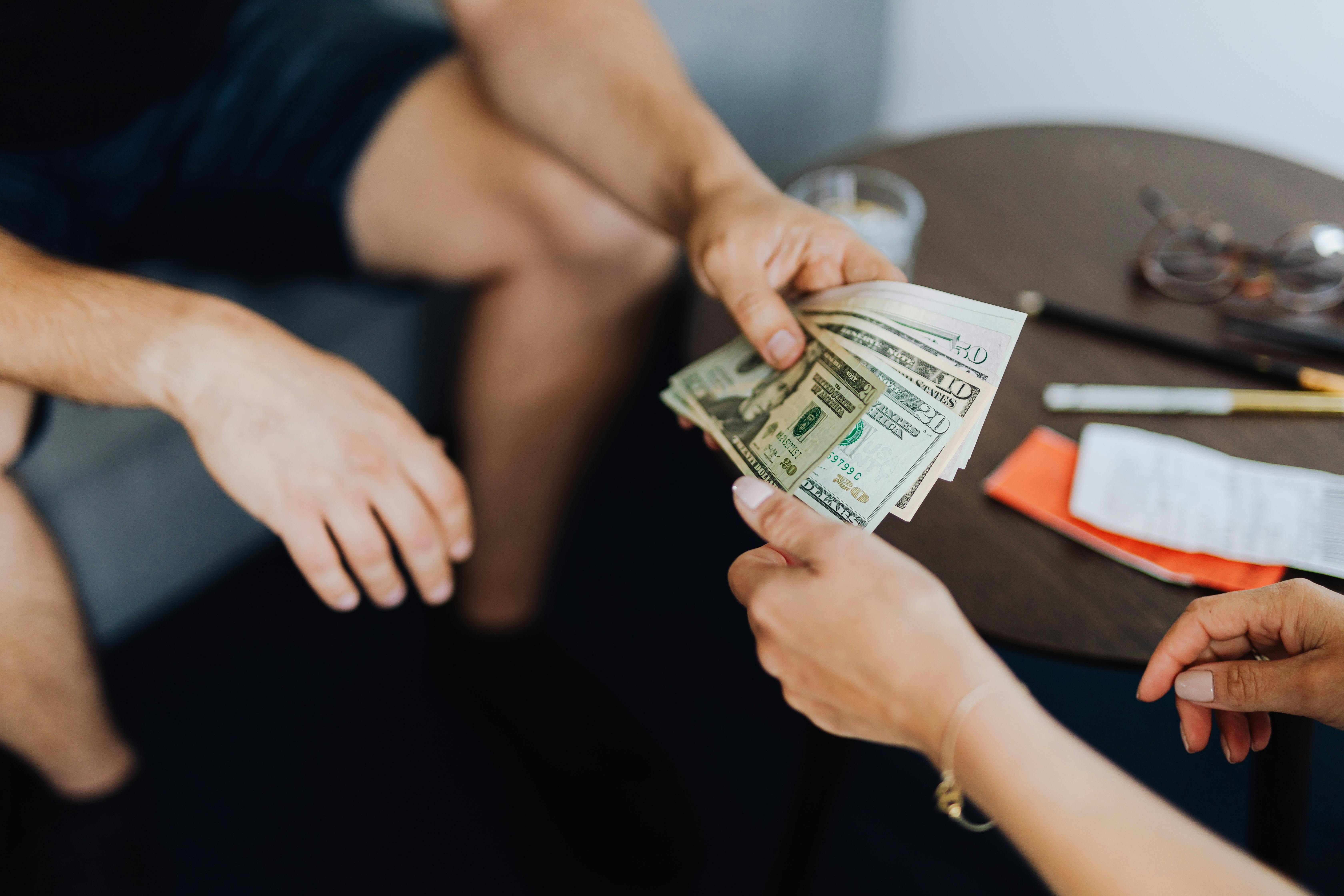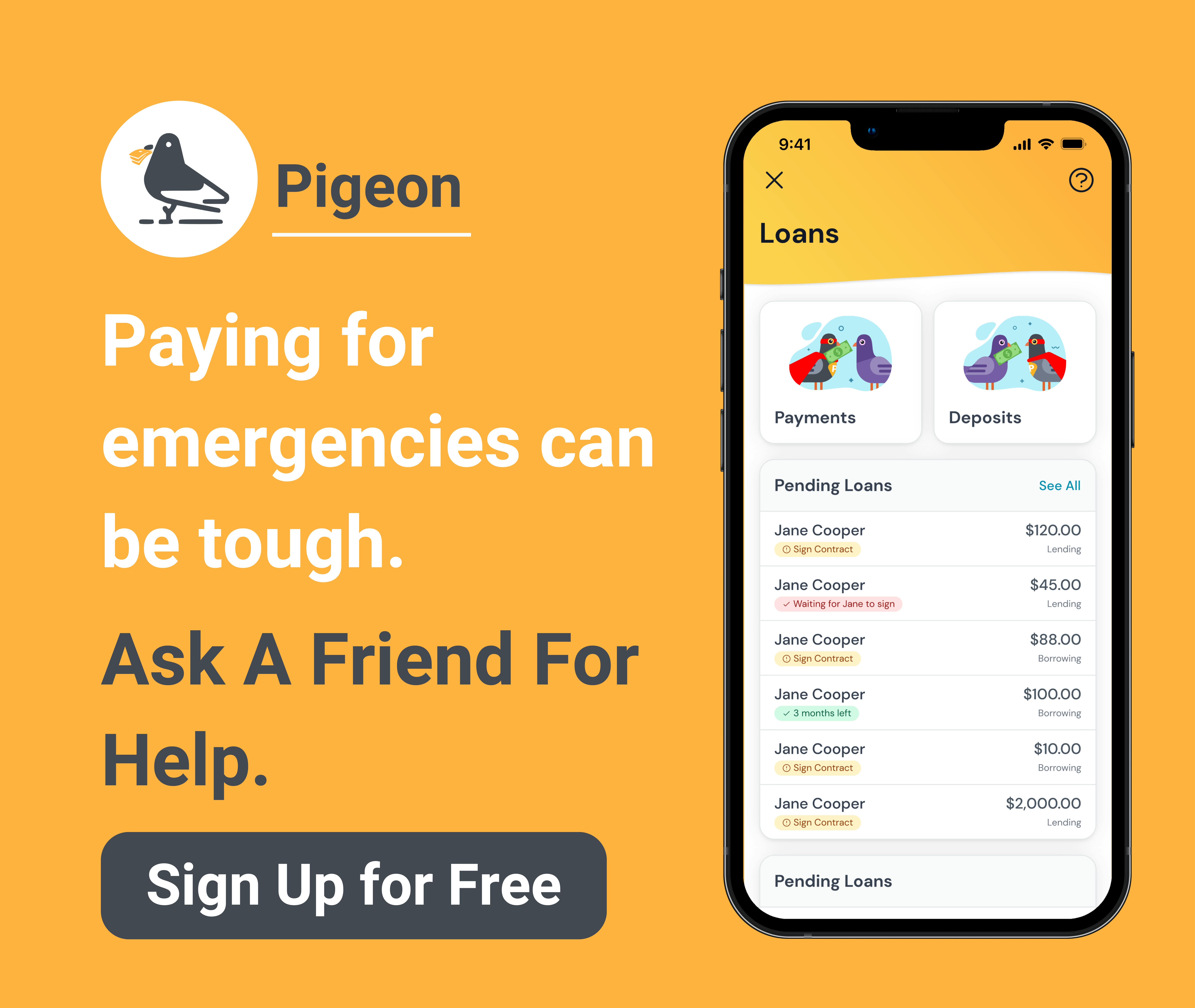Maybe you’ve found yourself in a sticky situation recently. You’ve gotten hit with a sudden and unexpected expense — emergency medical bills, a home repair, or the loss of a loved one — and you’re asking yourself how to cover these costs.
An emergency loan can be a lifesaver in a time of need. In this article, we’ll cover what an emergency loan is, where and how to get one, and what to look out for. 🛟
What is an emergency loan?
An emergency loan is a short-term loan that is used to cover urgent and unexpected expenses. It can be secured, requiring you to put up collateral (like a home or car), or unsecured, meaning you simply owe money back without other considerations.
Secured emergency loans
If you have bad credit (or no credit), a secured loan might look tempting for a few reasons.
The first reason this may seem like an attractive option is that some lenders who issue secured loans don’t run credit checks. This means there is no minimum credit score required to qualify for a loan.
Additionally, secured loan providers don’t report late payments to any of the three major credit bureaus. However, you risk losing your collateral if you can’t pay back your debt.
Remember my friend Kelsey? She thought a secured loan was the best way to cover her emergency expenses. Fortunately, there are other options.
Unsecured emergency loans
An unsecured loan is a loan that doesn’t require collateral. Oftentimes, the lender of an unsecured loan will use your credit score to determine your odds of a loan approval. Since unsecured emergency loans are risky for lenders, they tend to have higher interest rates than secured loans.
How to choose an emergency loan, even with bad credit

I know you have an emergency, but wait! You should know that there are different types of emergency loans — some more predatory than others. Below are some common emergency loans offered by banks, credit unions, and online lenders.
1. Payday loans
One of the quickest but most dangerous options for an emergency is securing a payday loan. Payday loans are small loan amounts (between $100-$1,000) that should be fully settled by your next pay period. While it might sound easy to pay off a few hundred dollars in 2-4 weeks, payday lenders charge extremely high late fees that often trap borrowers in a cycle of debt.
To give you a picture of how high the fees are: the average APR for a payday loan is 400% and interest typically accrues at $15-20 per every $100 borrowed.
These loans are so bad that 80% of borrowers end up making late payments because most people cannot keep up with the snowballing interest. Some payday lenders bankroll leftover money they are owed into new payday loans, sucking vulnerable borrowers further into a debt trap. Before considering a payday loan, we highly recommend you look at other options. 👀
2. Cash advances/credit card advances
A cash advance is one of the easiest and fastest ways to get an emergency loan. You can get one by withdrawing money from an ATM using your credit card or by cashing a check.
As a head’s up, the amount you receive all depends on your FICO score and your bank’s policies. Some banks only give borrowers a portion of their line of credit. For example, if Kelsey’s line of credit is $1000, her bank may choose to authorize only 50%. On the other hand, some banks offer the same fixed emergency loan amount to all their customers.
Something else to note is that cash advances have incredibly high-interest rates. We’re talking annual percentage rates ranging from 16.99% to 28.99+%. If you go down this route, you may also be charged a transaction fee and a processing fee.

3. Personal loans
Unsecured personal loans can be used for almost anything including , medical expenses, and emergency expenses. You can get a personal loan from a traditional lender like a bank—in those cases, your eligibility for a personal loan depends on your FICO score, credit report, and debt-to-income ratio. However, you can also use a platform like Pigeon to create a loan between you & a friend or family member and manage it for free.
💡 Tip: To avoid the downsides of a hard pull, find out if your lender can pre-qualify you with a soft credit check.
If you prefer installment loans, meaning loans that let you pay over months or years, then a personal loan could be the right choice for you. Once approved, funds are typically deposited into your bank account within a few days.
4. Title Loan
A title loan is a short-term secured loan that uses the borrower’s vehicle as collateral. It’s one of the easiest loans to qualify for since lenders don’t run credit checks. Additionally, loan applications are approved within a few hours, and funds are made available in 24 hours or less. Theoretically, this sounds like one of the best emergency loan options.
Keyword: theoretically.
Like payday loans, title loans have high-interest rates and short repayment terms. Let’s say Kelsey actually owned her car and decided to put it up as collateral to get the money she needed to fix it. She decides to take out $2,000 at a 25% interest rate and has to pay it back in 30 days. After 30 days, she’ll have to pay back $2,500.
If she can’t, she’ll either be able to “roll over” the debt (and pay more in another 30 days) or give up ownership of her car.
So, sure, a title loan won’t affect your credit — but you could lose your transportation.
Where to get a good emergency loan?

If you're looking for an emergency loan, here are some places to start:
1. Your bank or credit union
Most banks offer personal loans that can be used for emergencies. Credit unions also offer personal loans, and they may have more favorable interest rates than banks.
💡 Tip: To get the most out of your bank loan, try shopping around for one that has $0 origination fees and no prepayment penalties.
2. Online lenders
If you don't have time to go to your bank or credit union, or if you don't have a good relationship with them, you can try an online lender.
The application process is usually quick and easy. All you have to do is complete an online application, and you may be approved for a loan in just a few minutes. While online lenders may charge higher interest rates than traditional institutions, they can be a valuable resource in a time of need.

3. Peer-to-peer lending
Peer-to-peer lending is a type of lending in which individuals borrow and lend money to each other without going through a traditional financial institution. This type of lending can be a good option for people who need emergency loans but may not be able to qualify for a traditional loan.
When you use peer-to-peer lending, you’ll typically make monthly payments until the loan is repaid in full. This can be a good option if you're looking for a smaller loan or if you have a poor credit score.
Oh and psst! You’re on a peer-to-peer lending site right now! 🐣 Make sure to check out Pigeon’s free-to-use tool to track and organize any peer-to-peer loans you make with friends, family members, or acquaintances.
What to consider before taking out an emergency loan
When considering an emergency loan, it's important to weigh the costs against the benefits. Emergency loans tend to have high-interest rates, so it's important to make sure that you will be able to pay the loan back on time. It's also important to make sure that you are borrowing money for a legitimate purpose and that you won't be putting yourself in further financial difficulty by taking out the loan.
If you decide that an emergency loan is right for you, there are a few things you can do to make the process easier.
First, make sure you know how much you need and what the repayment terms are. Next, shop around for the best interest rate. Finally, make sure you have your documentation ready so that you can apply for the loan as quickly as possible.

How to apply for an emergency loan
Alright, ready to get a loan? Great! Before Kelsey took out her loan, she looked at the application processes each of the 3 emergency loan lenders had, and here’s what we found out.
When applying for an emergency loan, a bank or credit union will ask loan candidates to provide:
- Proof of income: lenders want to know that a loan can be repaid, and providing documents like recent pay stubs helps them determine whether you can repay your loan or not. In addition to pay stubs, you can submit last year's tax return or a bank statement from the last 3 months as proof of income.
- Proof of residency: banks want your address for two reasons. One, they need to know where to send your mail. And two, your address gives them insight on your lifestyle and eligibility. A valid driver's license, utility bill, or lease agreement are all valid proofs of residency.
- Proof of identity: to reduce identity theft, banks will need photo identification like a state-issued ID, SSN, or passport.
If you have a poor credit history or no credit history, you may also be asked to provide a co-signer.
Getting an emergency loan from an online lender is similar. First, you fill in an online application that asks basic questions like your age, income, address, and the purpose of the loan. The lender will call or email you with the loan terms once the form is completed.
And finally, peer-to-peer lending platforms like Pigeon roughly follow the same process. Actually, it might be easier! 🤔
Pigeon, for example, only needs you to:
- Sign up and invite a friend/family member to join the platform
- Answer a few simple questions about the loan terms
Afterward, we’ll send your loan proposal to the lender. Once you both agree on the terms, you’ll get a legally-binding loan agreement to sign – on us! 👐

FAQs
How fast can I get an emergency loan?
Emergency loans are designed to meet immediate financial needs and are typically available within 24 hours. The application process is quick and easy, and you can usually receive a decision within minutes.
If you are approved, the funds will be deposited directly into your account, allowing you to access the money as soon as possible. However, the speed of your loan will ultimately depend on the lender you choose and the specific details of your loan.
What are some emergency loan alternatives?
If you want to skip the high-interest rates that come with emergency loans, try asking family or friends for a loan. This can be a good option if you're in need of a small amount of money and you know you can repay it quickly. However, it's important to make sure that you communicate your repayment plan to the person you're borrowing from so there are no hard feelings later on.
Another option is to tap into your emergency fund if you have one. An emergency fund is a savings account that you set aside for unexpected expenses. If you have money saved up in an emergency fund, you can use it to cover your costs without having to take out a loan.
Finally, you may be able to set up automatic payments on your bills so that you're never late on a payment. This can help you avoid fees and late charges, which can add up quickly.

Will an emergency loan affect my credit?
If you're considering taking out an unsecured personal loan, you may be wondering if it will impact your FICO score. The short answer is: it depends.
If you have a good credit score, taking out an unsecured personal loan is unlikely to have a significant impact on your FICO score. However, if you have a poor credit score, taking out an unsecured personal loan could further lower your FICO score.
The reason why an unsecured personal loan could impact your FICO score is because it's considered a new line of credit. When you take out a new line of credit, that can lower your FICO score because it's seen as an increased risk by lenders.
However, if you make all of your payments on time and in full, that will help improve your FICO score over time. So, even if taking out an unsecured personal loan does lower your FICO score initially, as long as you manage the loan responsibly, you can eventually improve your score.
Conclusion
Whether it's to cover moving costs or an unexpected car repair like my friend Kelsey, sometimes you just need a little extra cash to get by. That's where emergency loans come in.
Emergency loans are designed to provide quick and easy access to funds in the event of an emergency. And because they are typically smaller loans, they can be easier to qualify for than traditional loans from a bank or credit union.
One of the biggest benefits of an emergency loan is that you can often get the money you need fast – sometimes as soon as the next business day. That means you don't have to worry about waiting for weeks or even months to get approved and receive your loan funds.
Another benefit is that emergency loans can often be approved even if you have bad credit.
If you're in need of quick cash and you don't have time to wait for traditional loan approval, then an emergency loan may be the right solution for you. Just be sure to compare different rates and terms before you decide on a lender.

Want to read more related content? Check out some more of our awesome educational pieces below:



